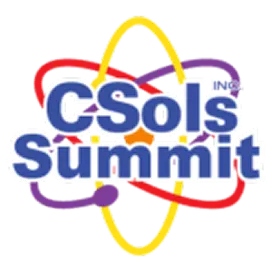Regardless of why you have decided you need a Laboratory Information Management System (LIMS), the tasks of planning, selecting and implementing a LIMS can be both risky and daunting. Engaging a LIMS consultant or LIMS consulting group will mitigate your risk and increase your ability to attain true LIMS project success including attaining a high LIMS adoption rate. However, this will only be the case if you choose the right LIMS consultant.
Choosing the right LIMS consultant is important to the success of any lab digitization or modernization effort. This blog guides readers through the essential skills and qualifications to look for—ranging from technical expertise and industry knowledge to project management and communication skills. We will help you make informed decisions that ensure your LIMS implementation is efficient, compliant, and tailored to your lab’s unique needs.
LIMS Consultant Required Skill Set: Domain Expertise
When selecting your LIMS consultant, it is critical that the consultant or consulting group has demonstrable experience in your specific industry and laboratory environment. In other words, if you are implementing a LIMS in a pharmaceutical Quality Control (QC) lab, the LIMS consultant you engage with should have expertise in both working in a pharmaceutical QC lab and implementing a LIMS in a pharmaceutical QC lab. Having experience and expertise in a pharmaceutical Research & Development (R&D) environment or a chemical QC lab is not always sufficient. This degree of specificity may seem unnecessary, but without real expertise in your domain, the LIMS consultant will not provide full value. They may not really understand the organization’s needs and requirements, the science going on, the laboratory work flows, or the laboratory data and information flows.
LIMS Consultant Required Skill Set: LIMS Expertise
If you believe that in selecting a LIMS consultant all LIMS are the same and as long as the consultant has some LIMS experience, they will be fine, think again. While it can appear from a macro level that the capabilities and functions in each LIMS are the same, the reality is that once you get under the hood, how a particular LIMS is architected and how it implements capabilities will vary widely. Some questions that will highlight the differences between LIMS systems include:
- Is the LIMS you are seeking to implement a tool kit or a plug and play system or something in between?
- How is tailoring of the system accomplished?
- If you need to integrate or customize the LIMS, how is this accomplished? Is there an API?
The answers to these questions and many others will depend on the LIMS you have selected. It is, therefore, critical that the LIMS consultant you engage with has experience and expertise in the specific LIMS you are attempting to implement or enhance. Of course, if you are at the planning and selection stage of your LIMS project this requirement can be relaxed somewhat but the domain expertise becomes even more critical.
LIMS Consultant Required Skill Set: IT Expertise
A LIMS is a software system that exists and resides within a network, on a server or servers (even if in the cloud), and interacts with the users on some type of device such as a laptop, tablet, or smartphone. Additionally, a LIMS will have a database that will need to be sized, installed, and tuned for optimum performance. So, unless you have an IT staff that has experience and expertise with all these elements with respect to a LIMS, it will be critical that the LIMS consultant or consulting organization that you engage with has the IT expertise required to successfully install, implement, and tune your laboratory informatics solution. Moreover, if the LIMS consultant also has IT expertise, you will reduce your resource needs accordingly.
LIMS Consultant Required Skill Set: Regulatory Expertise
Depending on your industry, you may or may not be subject to a variety of guidelines, rules, and regulations (FDA, 21 CFR Part 11, GxP, etc.) that will need to be addressed in your LIMS and its implementation. You may even be required to validate your LIMS. Some of the industries subject to regulations include Life Sciences and Food & Beverage. The need to adhere to these regulations, and the ability to prove that you do, will affect many aspects of your LIMS project including:
- Project tasks
- Project timelines
- Resource needs
- Documentation needs

LIMS Consultant Required Skill Set: Project Management Expertise
If you are planning on engaging a consultant (or multiple consultants) to manage your LIMS project, then it is critical that you engage one with experience in planning and managing LIMS implementations. Having generic IT project management skills and experience is just not enough. Without LIMS project experience and expertise, your consultant will not be able to make accurate task effort estimates, compile resourcing needs assessments, or manage the LIMS project team members and the communication needs of all the stakeholders. LIMS planning and implementation is a very complicated affair and only having a project management professional (PMP) certification is not sufficient to guarantee success.
LIMS Consultant Required Skill Set: Data Management
A LIMS consultant who understands data management is a big advantage for your project. This skill can really help make your LIMS setup and day-to-day operations more successful. This includes handling master data management (MDM), data migration from legacy systems, and integration with instruments and enterprise platforms. Proficiency in database technologies like SQL is essential for configuring and maintaining data structures within the LIMS. Consultants should also be skilled in ensuring data quality and standardization and maintaining compliance through accurate documentation and audit trails. These capabilities enable effective system configuration, troubleshooting, and strategic planning, leading to regulatory adherence and optimized lab performance.
LIMS Consultant Required Skill Set: Instrument/System Interfacing
Strong skills in connecting lab instruments and systems are essential for a LIMS consultant. These skills allow automatic data transfer, which helps reduce manual errors and ensures accurate, compliant data. Consultants should understand how different systems communicate, be familiar with data formats like CSV, XML, and JSON, and know how to use middleware to link systems together. They should be able to build both one-way and two-way connections using APIs, scripting languages, and SQL. It’s also important that they can evaluate instrument capabilities, choose the right integrations based on lab workflows, and check data accuracy after setup. Knowing regulatory standards like GLP, GMP, and FDA 21 CFR Part 11 is key to keeping data traceable and audit ready.

When you selected and implemented your LIMS, did you use a LIMS consultant or consulting group that had the skills described here?




Comments